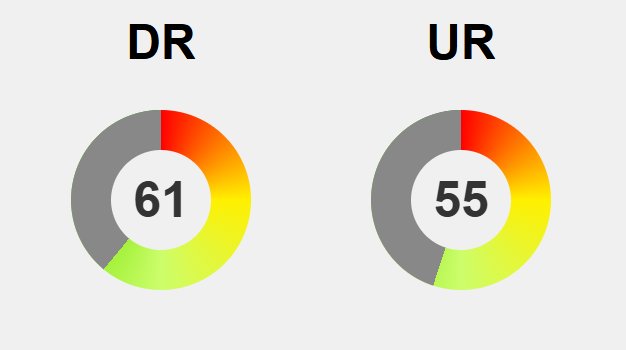Friedrich Nietzsche’s revolutionary ideas continue to challenge how we perceive morality, identity, and culture. His fierce rejection of traditional values invites us to question societal norms and embrace authentic self-creation. But how can embracing chaos and uncertainty lead to personal freedom? Nietzsche’s concepts of the will to power, the Übermensch, and eternal recurrence push us to live deliberately and forge our own paths amid a world often devoid of inherent meaning. His critique of herd mentality and moral constraints inspires both philosophical inquiry and artistic rebellion, fostering a culture of originality and resilience. As his influence extends beyond academia into psychology, art, and societal change, Nietzsche’s call to question authority and live authentically remains profoundly relevant. Are we willing to embrace the chaos within and redefine our destiny? His legacy challenges us to live boldly, continuously reinvent ourselves, and shape a future rooted in genuine self-expression and transformative growth.
Unveiling Nietzsche’s Revolutionary Impact on Self and Society
Friedrich Nietzsche’s ideas didn’t just shake up academic philosophy—they transformed how we see ourselves and the world around us. His fearless critique of traditional morality and authority challenged long-held beliefs, opening up new ways to understand human motivation and identity. Instead of accepting societal norms at face value, Nietzsche pushed us to question the foundations of what we consider right, wrong, and meaningful. This act of questioning sparked a movement toward personal authenticity and empowerment, encouraging individuals to forge their own paths rather than follow the crowd.
Born in 1844 in the small German town of Röcken, Nietzsche grew up in a religious and conservative environment. His father, a Lutheran pastor, died when Nietzsche was just five, leaving him in the care of his mother and sister, who upheld strict religious values. Despite this upbringing, Nietzsche’s natural curiosity and sharp intellect led him to challenge the beliefs he was taught. As Europe experienced rapid social and industrial change, his skepticism deepened, fueling his urge to question the very moral and cultural structures that seemed to define his society.
What makes Nietzsche’s impact so lasting is how he turned philosophy into a tool for individual rebellion. His critique of religious morality, which he saw as suppressing strength and creativity, encouraged us to see morality as something that should be created by each person, not dictated from above. His ideas about living authentically and embracing one’s own values continue to resonate, inspiring movements that prioritize self-creation and personal freedom. Nietzsche’s philosophy isn’t just about abstract ideas—it’s a call to action for anyone willing to challenge the status quo.
Throughout his life, Nietzsche exemplified his own call for independence. His writings challenge us to question not only external authorities but also our internal beliefs, urging a continuous process of self-overcoming. By doing so, he laid the groundwork for a way of thinking that values individualism over conformity. Today, his influence extends beyond philosophy into psychology, art, and politics, where his revolutionary spirit encourages ongoing debate about authority, morality, and the pursuit of authentic life.
Nietzsche’s thought invites us to see life as a constant act of creation and reinvention. His challenge to inherited values and his emphasis on questioning everything push us to live more deliberately. By embracing chaos, uncertainty, and our own inner drives, we can forge a life rooted in genuine self-expression. His legacy reminds us that true freedom comes from within—the courage to question, to rebel, and to shape our own destiny. This revolutionary mindset remains as relevant today as it was in his time.
Core Ideas That Challenge and Transform Morality
Friedrich Nietzsche’s philosophy centers around bold, provocative ideas that challenge conventional thinking and invite us to see human motivation and morality in a new light. At the heart of his thought is the concept of the will to power, which suggests that our fundamental drive is not just survival or pleasure, but a deep-seated desire to assert influence, grow stronger, and shape our destiny. This idea turns traditional morality on its head, proposing that striving for power and self-assertion are natural and essential aspects of human nature.
Building on this, Nietzsche introduces the figure of the Übermensch, or “Overman,” as an ideal to aspire to. The Übermensch transcends societal norms and moral constraints to forge a unique set of values rooted in authenticity, strength, and self-mastery. Instead of conforming to external standards, this higher individual creates their own meaning, embodying a life driven by personal excellence and creative self-expression. The Übermensch exemplifies Nietzsche’s call for radical self-creation in a world devoid of inherent meaning.
Nietzsche’s idea of eternal recurrence adds a deeply existential dimension. It posits that life repeats itself infinitely, and every moment will recur endlessly. The challenge is to live in such a way that you would be willing to relive every experience forever. This thought experiment pushes us to live intentionally, making choices aligned with our deepest values, and embracing each moment as an opportunity for authentic living. It’s a powerful reminder that our actions carry weight beyond the immediate.
Nihilism, another core concept, arises when traditional values—particularly religious and moral beliefs—lose their authority, leaving a sense of meaninglessness. Nietzsche saw this void not as the end but as a chance to rebuild from the ground up. He believed that in the face of nihilism, individuals have the freedom and responsibility to create their own purpose, values, and life-affirming narratives. This process of self-overcoming becomes essential to forging a meaningful existence amid chaos.
These ideas form an interconnected framework that challenges us to rethink morality, identity, and purpose. Nietzsche urges us to reject external authorities and instead harness our innate drives to craft a life of authenticity and strength. His philosophy is less about denying traditional values and more about encouraging active self-creation—an ongoing process of becoming who we truly are. By embracing these principles, we can unlock our potential and live with boldness and purpose.
Tracing Nietzsche’s Enduring Influence Across Culture and Mind
Friedrich Nietzsche’s ideas have left an indelible mark on contemporary culture, psychology, and philosophy, shaping how we see ourselves and the world today. His critique of traditional morality and focus on individualism opened new avenues for understanding human motivation and identity. Movements like existentialism and modern self-help owe much to his call for authenticity and personal empowerment, inspiring countless people to forge their own paths amid societal expectations.
In philosophy, Nietzsche challenged centuries of accepted truths by rejecting fixed moral standards and advocating for self-created values. This shift has fueled debates around the fluidity of morality and the subjective nature of truth, paving the way for postmodern thought. His ideas encouraged thinkers to question authority and recognize the power dynamics embedded in cultural narratives, leading to a more relativistic and pluralistic view of reality.
Beyond academia, Nietzsche’s influence extends into literature, art, and popular culture. His emphasis on embracing chaos and raw emotion has inspired artists and writers to push boundaries and explore deeper aspects of human experience. This celebration of authenticity and individual expression has fostered creative movements that reject conformity, encouraging innovation and emotional honesty in artistic pursuits.
In the realm of psychology, Nietzsche’s notion of the will to power laid groundwork for understanding unconscious drives and motivations. Thinkers like Freud and Jung drew on his ideas, exploring the complex layers of human desire beyond societal and religious constraints. His emphasis on self-overcoming and inner strength continues to resonate in contemporary therapeutic approaches that focus on personal growth and resilience.
Politically, Nietzsche’s work remains controversial. His focus on strength and self-assertion has been interpreted both as empowering individual agency and, at times, as a justification for elitism or social fragmentation. Nonetheless, his provocative ideas persist in sparking ongoing discussions about authority, freedom, and the role of the individual within society.
Overall, Nietzsche’s influence continues to challenge and inspire. His call to question inherited beliefs, embrace personal authenticity, and view life as a continuous act of self-creation remains central to modern thought. Engaging with his ideas encourages a mindset of resilience and perpetual growth—an ongoing quest to understand ourselves better and shape a more authentic, liberated future.
For those interested in exploring Nietzsche’s ideas further, delving into resources that analyze his philosophy can provide deeper insights. One such valuable resource is a comprehensive overview available at Understanding Nietzsche’s Philosophy, which offers detailed explanations of his core concepts and their relevance today.
Applying Nietzsche: Empowerment, Creativity, and Societal Shift
Nietzsche’s ideas are more than just philosophical concepts; they offer practical tools for transforming how we approach personal growth and creativity. Embracing self-creation means actively shaping our lives instead of passively accepting societal expectations. By questioning inherited beliefs and values, we can identify what truly resonates with us, allowing us to craft a life rooted in authenticity and strength. This mindset turns setbacks into opportunities, viewing challenges as necessary steps in the ongoing process of self-overcoming. Embracing chaos and uncertainty becomes part of the journey, fostering resilience and independence that fuel genuine self-expression.
In the realm of art and creative work, Nietzsche’s call to embrace chaos and individuality has sparked a wave of innovation. Artists and writers are inspired to break free from traditional norms, exploring raw, honest human experiences. Rejecting conformity opens the door for artworks that challenge viewers to think differently and feel more deeply. Authenticity becomes the guiding principle, encouraging creators to tap into deep emotional truths and develop unique voices. This rebellion against conventional standards elevates art into a powerful means of personal and cultural transformation.
On a societal level, Nietzsche’s philosophy champions cultural renewal through individual empowerment. His ideas challenge us to question authority and systems that suppress creativity and critical thinking. Movements inspired by his thought strive to dismantle barriers to personal freedom and self-expression. They foster environments where innovation is celebrated, diversity is embraced, and people are encouraged to live according to their own principles. Such shifts can lead to communities rooted in authenticity, mutual respect, and shared growth, where societal progress is driven by individuals daring to be true to themselves.
Applying Nietzsche’s philosophy involves cultivating a mindset of constant questioning. Instead of accepting societal norms at face value, we reflect on what genuinely matters to us. Setting personal goals that push our limits and challenge comfort zones becomes a natural part of life. Viewing struggles as opportunities for growth rather than failures deepens resilience and purpose. This active process of reevaluation and reinvention helps align our daily actions with our core values, making authenticity a living practice rather than an abstract ideal.
In everyday decisions, Nietzsche’s ideas encourage us to reassess our beliefs regularly. Are these beliefs truly ours, or have they been adopted from external influences? His concept of self-overcoming suggests that growth requires shedding old layers and constantly forging new ones. Embracing discomfort and uncertainty as catalysts for transformation transforms life into a continuous act of artistic creation. We become both the artist and the canvas, shaping a life that reflects our deepest principles and aspirations.
Educational and cultural institutions increasingly draw on Nietzsche’s emphasis on authenticity and individual agency. Schools foster critical thinking and personal development, encouraging students to challenge authority and develop their unique perspectives. Artistic communities celebrate originality and emotional depth, often pushing boundaries to foster innovation. These environments nurture independent thought and self-expression, embodying Nietzsche’s vision of a society where the power of the individual to shape their destiny is valued and supported.
Embracing the Future: Continuing Nietzsche’s Journey of Self-Overcoming
Nietzsche’s revolutionary ideas continue to challenge us to rethink the very foundations of morality, identity, and cultural values. His call for self-creation and individual empowerment remains a compelling blueprint for personal growth and societal change. Revisiting concepts like the will to power, the Übermensch, and his critique of herd mentality reminds us of the importance of questioning authority and embracing authenticity. These ideas are not relics of the past; they serve as tools to inspire more intentional, courageous living today.
Engaging with Nietzsche’s thought encourages us to look beyond surface assumptions and explore what truly drives us. His emphasis on self-overcoming and the ongoing process of becoming urges us to see challenges not as setbacks but as vital steps in growth. This perspective fosters resilience, helping us navigate modern uncertainties with purpose rooted in our authentic selves. The journey of self-discovery, Nietzsche reminds us, is never complete—it’s a continuous act of reinvention.
His influence extends far beyond philosophy, shaping art, psychology, and cultural discourse. Nietzsche’s emphasis on embracing chaos and raw emotion has inspired countless creators to forge new paths, celebrating originality and deep human experience. His ideas push us to reject conformity and foster environments where authenticity and innovation flourish, leading to richer, more diverse cultural landscapes. His call to live boldly and truthfully remains a vital force across creative and intellectual fields.
Looking ahead, Nietzsche’s spirit challenges us to build communities that value diversity, independence, and critical thinking. His critique of inherited values encourages us to cultivate environments where people dare to express their true selves without fear of judgment. Such shifts have the power to create more inclusive, vibrant societies rooted in mutual respect and shared authenticity. Nietzsche’s vision reminds us that cultural renewal starts with individuals willing to question, rebel, and redefine their own lives.
Living according to Nietzsche’s principles means embracing constant questioning and self-reinvention. It involves shedding old beliefs that no longer serve us and boldly forging new ones aligned with our deepest truths. This active process turns life into an ongoing act of artistic creation, where we shape ourselves and our worlds intentionally. Every challenge becomes an opportunity to grow stronger, more authentic, and more free.
His ideas also inspire us to see struggles as essential to development, not obstacles. By viewing difficulties as catalysts for growth, we deepen our resilience and clarify our purpose. Nietzsche’s call to challenge complacency and seek continuous self-improvement invites us to live with intentionality, making each moment a step toward becoming our best selves. This mindset fosters a life of meaningful transformation and authentic engagement.
Ultimately, Nietzsche’s legacy encourages us to remain curious, brave, and committed to personal and collective evolution. His revolutionary spirit urges us to question inherited beliefs, embrace chaos, and craft lives rooted in authenticity. By doing so, we participate in a ongoing process of cultural renewal—one that elevates the individual and promotes a more liberated, conscious society. His ideas remain a powerful invitation to live fully, boldly, and true to ourselves.












